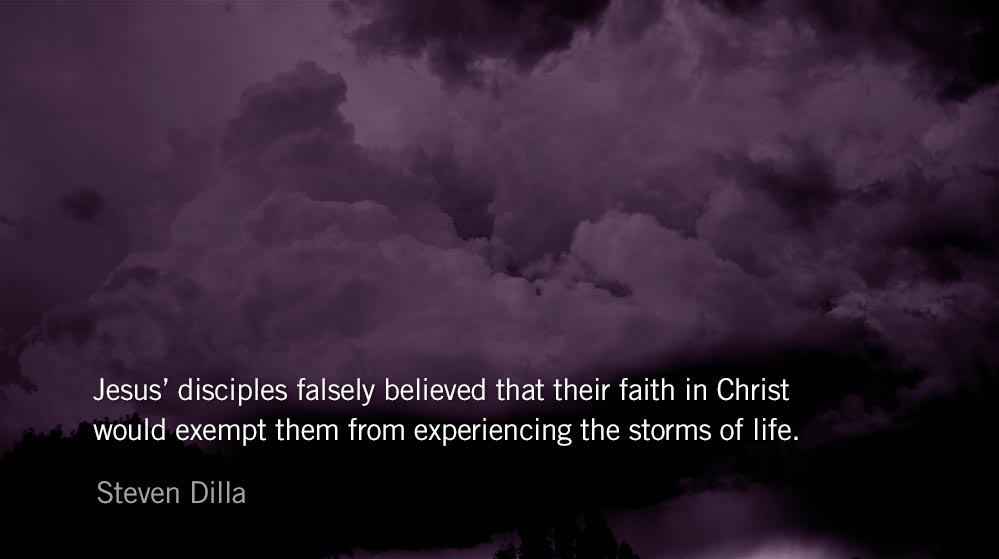And Jesus said to them, “Why are you afraid, O you of little faith?” Then he rose and rebuked the winds and the sea, and there was a great calm. — Matthew 8.26
In some ways, the prosperity gospel’s value proposition is appealing: faithfully obey God and he will keep your life privileged and comfortable. It’s a quid pro quo—if you can muster up faith, then he will respond to your strength. But this is not the way it worked for the saints’ lives recorded in Scripture.
God chose not to save Israel from slavery, but to rescue them in it. “Ah!”—the prosperity delusion says—they were sinful; they had a lesson to learn before the Exodus. It’s clear disobedience is an element of their story, but obedience and faithfulness aren’t demonstrated anymore after the Exodus than they are before or during it.
Consider Shadrach, Meshach, and Abednego. They were faithful, but God didn’t save them from the fire—he saved them in it. “There are four men walking around!” the king exclaimed. Daniel wasn’t spared from receiving the death penalty, but he was rescued in the depths of the pit.
Had Daniel expected God to protect him from the embarrassment of arrest, the anguish of being sentenced to death, or even the fall down onto the sandy blood-stained floor, the great man of prayer would have missed what was happening. Where was God when Daniel was falling into the pit? At the bottom, we learn, waiting in the depths of suffering.
Jesus’ disciples falsely believed that their faith in Christ would exempt them from experiencing the storms of life. When the tempest lashed against them they cried out, “Save us!” It is no different from us.
Like with Israel, God redeems us from the slavery of sin and brokenness. Like with Shadrach, Meshach, and Abednego, Gods meets us in the fiery struggles of our world. Like with Daniel, God is the only thing sufficient to spare us from death’s sting. Yet this is not all he does.
Limiting the story of the gospel to individual salvation focuses our faith on ourselves. If our lives are the focus of Christ’s work, then going through a storm is a sign God has lost control. Yet if the gospel is about a greater work of renewing and restoring a lost and broken world, then we can trust God to be Emmanuel—God with us—in the storm.
Today’s Reading
Isaiah 60 (Listen – 3:55)
Matthew 8 (Listen – 4:09)






